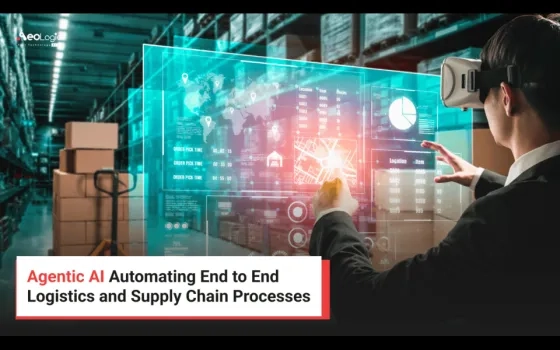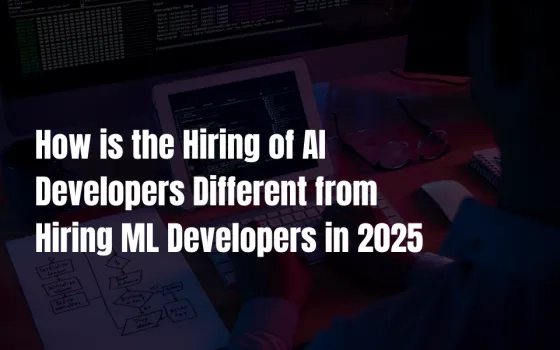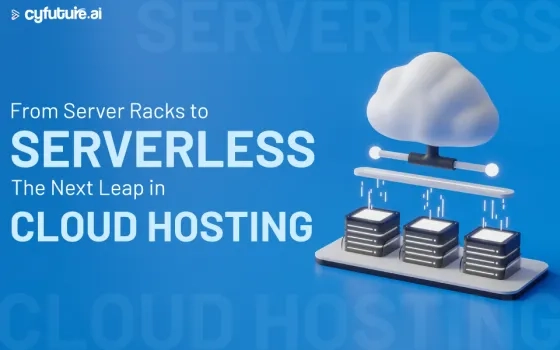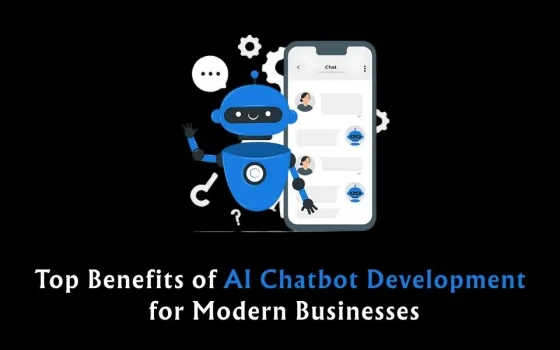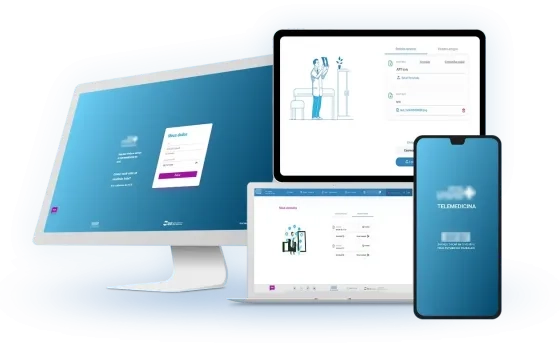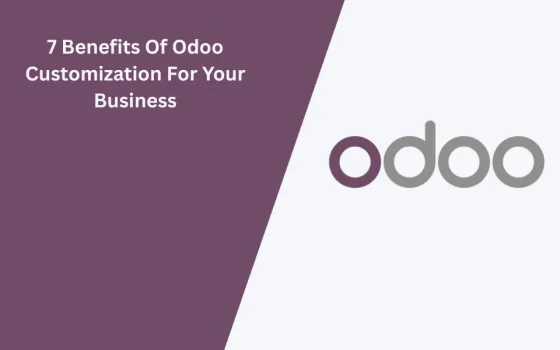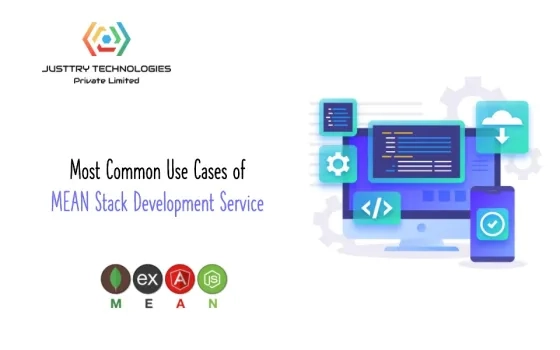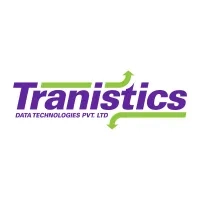In an era where business intelligence and automation drive growth, traditional ERP systems must evolve beyond static workflows and rigid logic. Enterprises across the globe are embracing intelligent technologies to stay ahead of the curve, boost productivity, and unlock data-driven decision-making. This evolution has given rise to the convergence of Odoo development services with artificial intelligence and machine learning (AI/ML). By blending the modular power of Odoo with the cognitive capabilities of AI and ML, businesses can future-proof their operations and create intelligent ecosystems that adapt, learn, and optimize continuously.
The Growing Need for AI-Infused ERP Solutions
ERP software has long been essential for centralizing business processes, but conventional systems often rely on reactive models—processing data after it’s collected. Modern businesses demand more: predictive insights, autonomous operations, and smarter decision-making.
This is precisely where ai/ml development services step in. Integrating AI/ML into ERP systems transforms them from passive databases into active participants in business operations. From anticipating customer needs to automating procurement, intelligent ERPs empowered by machine learning help businesses operate proactively rather than reactively.
Why Odoo + AI/ML is the Perfect Pairing
Odoo, with its open-source architecture and extensible modules, provides the ideal foundation for intelligent ERP transformation. Whether it’s automating workflows, enhancing reporting, or creating personalized user experiences, integrating AI/ML into Odoo can elevate it from a transactional tool to a strategic powerhouse.
Let’s explore what makes Odoo and AI/ML such a dynamic duo:
1. Modularity Enables Targeted Intelligence
Odoo’s modular design allows businesses to integrate AI models into specific functions—like CRM, inventory, sales, or HR—without disrupting the entire system. For example, a machine learning model could analyze sales patterns within the CRM module to predict customer churn or personalize marketing campaigns.
2. API-Driven Architecture for Seamless Integration
Odoo supports RESTful APIs and external service connectors, allowing seamless interaction with Python-based AI models, cloud-based ML services, and advanced analytics engines. Whether you’re deploying TensorFlow, AWS SageMaker, or custom models, Odoo offers the technical flexibility needed for integration.
3. Data-Rich Environment for Model Training
Odoo captures vast volumes of structured business data—ideal for training and refining machine learning models. Clean, consistent data across modules enhances the accuracy and effectiveness of AI predictions.
Intelligent Use Cases of AI/ML in Odoo ERP
Let’s dive into specific areas where AI/ML can revolutionize how your Odoo ERP works:
1. Predictive Inventory Management
Traditional ERP systems rely on fixed reorder rules. But with AI/ML, Odoo can now forecast future inventory needs based on seasonality, historical demand, supplier performance, and even weather trends. This helps avoid stockouts and overstocking—reducing carrying costs and improving service levels.
Power Features:
-
Dynamic safety stock calculation
-
Real-time procurement suggestions
-
Supplier reliability scoring
2. Smart CRM and Lead Scoring
With AI-enhanced Odoo CRM, sales teams can identify high-potential leads faster. Machine learning models can analyze past conversions, email engagement, and customer behavior to score leads with high precision, enabling smarter follow-ups.
Uncommon Benefits:
-
AI-based email sentiment analysis
-
Conversational intelligence from call transcripts
-
Automated reminders for at-risk deals
3. Automated Financial Forecasting
Odoo’s accounting module can integrate AI to automate budget creation, expense predictions, and cash flow analysis. Machine learning can identify anomalies, suggest corrective actions, and even forecast tax liabilities.
Advanced Capabilities:
-
NLP-based invoice categorization
-
Auto-reconciliation of mismatched entries
-
Predictive ledger analysis
4. Human Resource Optimization
With AI/ML, Odoo’s HR module becomes a talent management engine. From screening resumes with NLP to forecasting attrition, it enables proactive HR planning.
Less Common Features:
-
Employee satisfaction modeling using survey data
-
Skill-gap prediction based on performance reviews
-
Workforce optimization via predictive shift planning
5. AI-Driven Customer Support
Odoo integrated with AI chatbots and NLP models can handle Level-1 customer queries autonomously. AI can also analyze historical support tickets to auto-suggest resolutions or flag recurring issues for root-cause analysis.
Innovative Enhancements:
-
AI sentiment alerts for dissatisfied customers
-
Predictive SLA breach warnings
-
Auto-prioritization of incoming support tickets
Implementation Path: Integrating AI/ML with Odoo
Building a future-ready ERP system isn’t a plug-and-play exercise. It requires a strategic roadmap and the right development expertise.
Step 1: Define High-Impact Use Cases
Identify processes that are data-heavy, repetitive, and outcome-driven—these are ideal candidates for AI infusion. Examples include demand forecasting, lead scoring, and document processing.
Step 2: Partner with a Full-Stack Development Team
You’ll need a development partner with deep experience in Odoo development services and expertise in ai/ml development services. They should be proficient in:
-
Odoo ORM and Python
-
AI frameworks like TensorFlow, PyTorch, Scikit-learn
-
Cloud deployment (AWS, Azure, GCP)
-
REST APIs and microservice architecture
Step 3: Data Preparation and Model Training
Historical ERP data must be cleaned, normalized, and enriched before training ML models. Experts then use this dataset to build, validate, and deploy models tailored to your KPIs.
Step 4: Integration with Odoo
Once the AI model is live, it’s integrated with the relevant Odoo module via API or internal Python scripts. The output is displayed via dashboards, automation rules, or embedded widgets.
Step 5: Continuous Monitoring & Retraining
AI systems are not static. Set up pipelines for model retraining using new data, performance monitoring, and feedback loops to ensure accuracy and relevance over time.
Benefits of AI/ML-Enhanced Odoo ERP
When done right, integrating AI/ML with Odoo unlocks exponential value across the organization:
✅ Predictive Business Insights
No more guessing. Businesses can anticipate trends, behaviors, and outcomes with greater precision.
✅ Automated Decision-Making
From auto-sending restock orders to escalating tickets, AI reduces human intervention and error.
✅ Cost Optimization
By reducing wastage, improving forecasting, and automating operations, businesses lower operational expenses.
✅ Agility and Scalability
AI-infused systems adapt to market changes faster, enabling companies to scale without friction.
✅ Enhanced Customer Experience
Personalized recommendations, faster support, and predictive engagement enhance satisfaction and loyalty.
Real-Life Success Story: AI + Odoo in Retail
A leading fashion retailer integrated Odoo ERP with a machine learning model for demand forecasting. The AI model analyzed historical sales, weather trends, holidays, and regional preferences to forecast demand for each SKU across 60+ stores.
Results:
-
40% reduction in inventory carrying costs
-
32% decrease in stockouts during peak season
-
25% increase in customer satisfaction ratings
Additionally, their HR module used AI to predict employee attrition based on leave trends, performance scores, and engagement levels, helping the business retain top talent proactively.
Future Trends: Where Is AI/ML in ERP Headed?
As AI and ML evolve, the integration with ERP will grow more sophisticated. Expect to see:
-
Federated Learning: Use data from multiple branches or departments without compromising data privacy
-
Explainable AI (XAI): Make AI predictions more transparent and accountable within business contexts
-
Edge AI for Manufacturing: Bring intelligent decision-making to the shop floor without relying on the cloud
-
AI-Augmented Decision Boards: Executives will have AI-assisted dashboards to simulate “what-if” scenarios in real time
Final Thoughts: Elevate ERP from Smart to Genius
ERP systems are no longer just repositories of data—they’re engines of strategic growth. By integrating Odoo development services with cutting-edge ai/ml development services, businesses can build ERP platforms that not only manage operations but optimize, predict, and lead.
The future belongs to businesses that don’t just collect data—but those who use it intelligently. Make your Odoo ERP not just future-ready, but future-leading.








